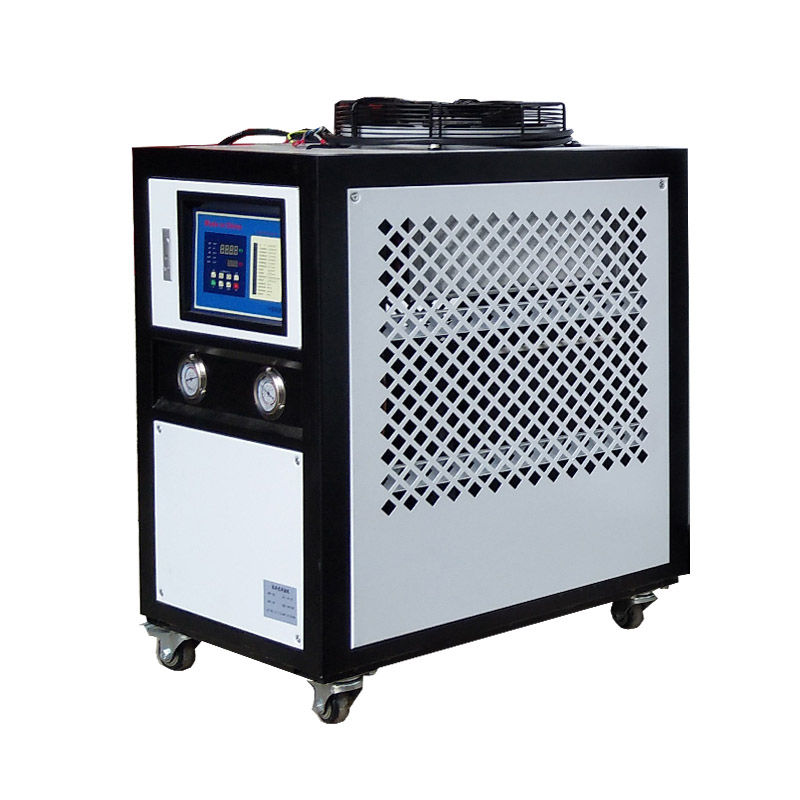
 English
English  Español
Español Português
Português русский
русский Français
Français 日本語
日本語 Deutsch
Deutsch tiếng Việt
tiếng Việt Italiano
Italiano Nederlands
Nederlands ภาษาไทย
ภาษาไทย Polski
Polski 한국어
한국어 Svenska
Svenska magyar
magyar Malay
Malay বাংলা ভাষার
বাংলা ভাষার Dansk
Dansk Suomi
Suomi हिन्दी
हिन्दी Pilipino
Pilipino Türkçe
Türkçe Gaeilge
Gaeilge العربية
العربية Indonesia
Indonesia Norsk
Norsk تمل
تمل český
český ελληνικά
ελληνικά український
український Javanese
Javanese فارسی
فارسی தமிழ்
தமிழ் తెలుగు
తెలుగు नेपाली
नेपाली Burmese
Burmese български
български ລາວ
ລາວ Latine
Latine Қазақша
Қазақша Euskal
Euskal Azərbaycan
Azərbaycan Slovenský jazyk
Slovenský jazyk Македонски
Македонски Lietuvos
Lietuvos Eesti Keel
Eesti Keel Română
Română Slovenski
Slovenski मराठी
मराठी Srpski језик
Srpski језик
How do Water-Cooled Chillers Provide Reliable Refrigeration Support Across Industrial, Commercial, Data center, and Healthcare Sectors?
2025-09-26
As large-scale industrial production and big commercial spaces develop, the need for stable and efficient refrigeration has been growing.Water-cooled chillers have "large refrigeration capacity, high energy efficiency, and stable operation"—they have become the preferred equipment for meeting high-load refrigeration needs.They are widely used in industries such as industrial manufacturing, commercial buildings, data centers, and healthcare. And they provide reliable refrigeration support for production work and comfortable environments in different sectors.

1. Industrial Production Sector: Ensuring Constant Process Temperature, Stabilizing Production Processes
In industrial production, processes in industries like chemical engineering, plastics, and electronics have strict requirements for temperature precision, and water-cooled chillers can control cooling temperatures precisely:
During chemical reactions, chillers are used to cool reaction kettles, preventing reaction out of control due to excessive temperatures. The chiller’s large refrigeration capacity can handle peak heat release during reactions, ensuring process stability;
During plastic extrusion molding, chillers provide circulating cooling for molds, quickly dissipating heat from molds to ensure the molding precision of plastic parts and production efficiency. At the same time, they avoid product defects caused by temperature fluctuations, meeting the needs of continuous industrial production.
2. Commercial Building Sector: Supporting Central Air Conditioning, Optimizing Comfort Experience
Central air conditioning systems in large commercial buildings (such as shopping malls, hotels, and office buildings) need to provide uniform refrigeration for large spaces, and water-cooled chillers have strong adaptability:
Shopping malls have dense crowds and high heat dissipation. Chillers can increase refrigeration capacity through modular combination to meet the refrigeration needs of different areas (such as stores and atriums). Meanwhile, their high energy efficiency reduces the overall energy consumption of the building;
Hotel guest room areas require stable temperature control. Water-cooled chillers operate with low noise and, combined with terminal air conditioning equipment, achieve precise temperature control, enhancing guests’ living comfort and avoiding the problem of sudden temperature changes with traditional refrigeration equipment.
3. Data Center Sector: Ensuring Equipment Heat Dissipation, Maintaining Stable Operation
Server clusters in data centers generate a large amount of heat during operation, and high temperatures easily cause equipment downtime. Water-cooled chillers are core heat dissipation equipment:
Chillers can operate continuously 24/7, dissipating heat from server racks through water circulation and precisely controlling the computer room temperature within a suitable range (usually 18-27℃), avoiding local overheating that affects server performance;
Compared with air-cooled equipment, water-cooled chillers have more stable refrigeration efficiency in high-temperature environments, making them particularly suitable for high-load heat dissipation needs of large data centers and reducing the risk of business interruption caused by insufficient heat dissipation.
4. Healthcare Sector: Meeting Special Refrigeration Needs, Complying with Strict Standards
Healthcare environments place stringent demands on the reliability and cleanliness of cooling equipment. Water-cooled chillers can meet a variety of medical needs:
Hospital imaging departments (such as CT and MRI equipment) require a constant temperature environment during operation. Chillers employ a stable cooling method to ensure imaging accuracy and prevent temperature fluctuations that could affect diagnostic results.
Operating rooms and ICU wards require a constant temperature and humidity environment. Water-cooled chillers, used in conjunction with cleanroom air conditioning systems, provide cooling while ensuring air cleanliness, complying with medical aseptic standards, and ensuring safe diagnosis and treatment.
| Application Sector | Core Refrigeration Requirements | Chiller Adaptation Advantages | Typical Application Cases |
|---|---|---|---|
| Industrial Production | Constant process temperature, continuous refrigeration | Large refrigeration capacity, precise temperature control | Cooling of chemical reaction kettles, mold cooling for plastics |
| Commercial Buildings | Uniform refrigeration for large spaces, energy saving | Modular combination, high efficiency and low consumption | Central air conditioning for shopping malls, temperature control in hotel rooms |
| Data Centers | 24/7 stable heat dissipation, high-temperature adaptation | Continuous operation, stable efficiency in high temperatures | Heat dissipation for server racks, constant temperature control in computer rooms |
| Healthcare | High reliability, clean temperature control | Stable operation, adaptation to clean systems | Cooling of imaging equipment, constant temperature in operating rooms |
Now, water-cooled chillers are changing toward "low-carbonization and intelligentization": They use frequency conversion technology to reduce energy consumption even more. They also add intelligent monitoring systems to achieve fault early warning and remote operation and maintenance. This fits the green development needs of different industries. As a key piece of equipment for high-load refrigeration scenarios, using them more in many fields will keep providing strong support for efficient industry operations and better environmental conditions.





